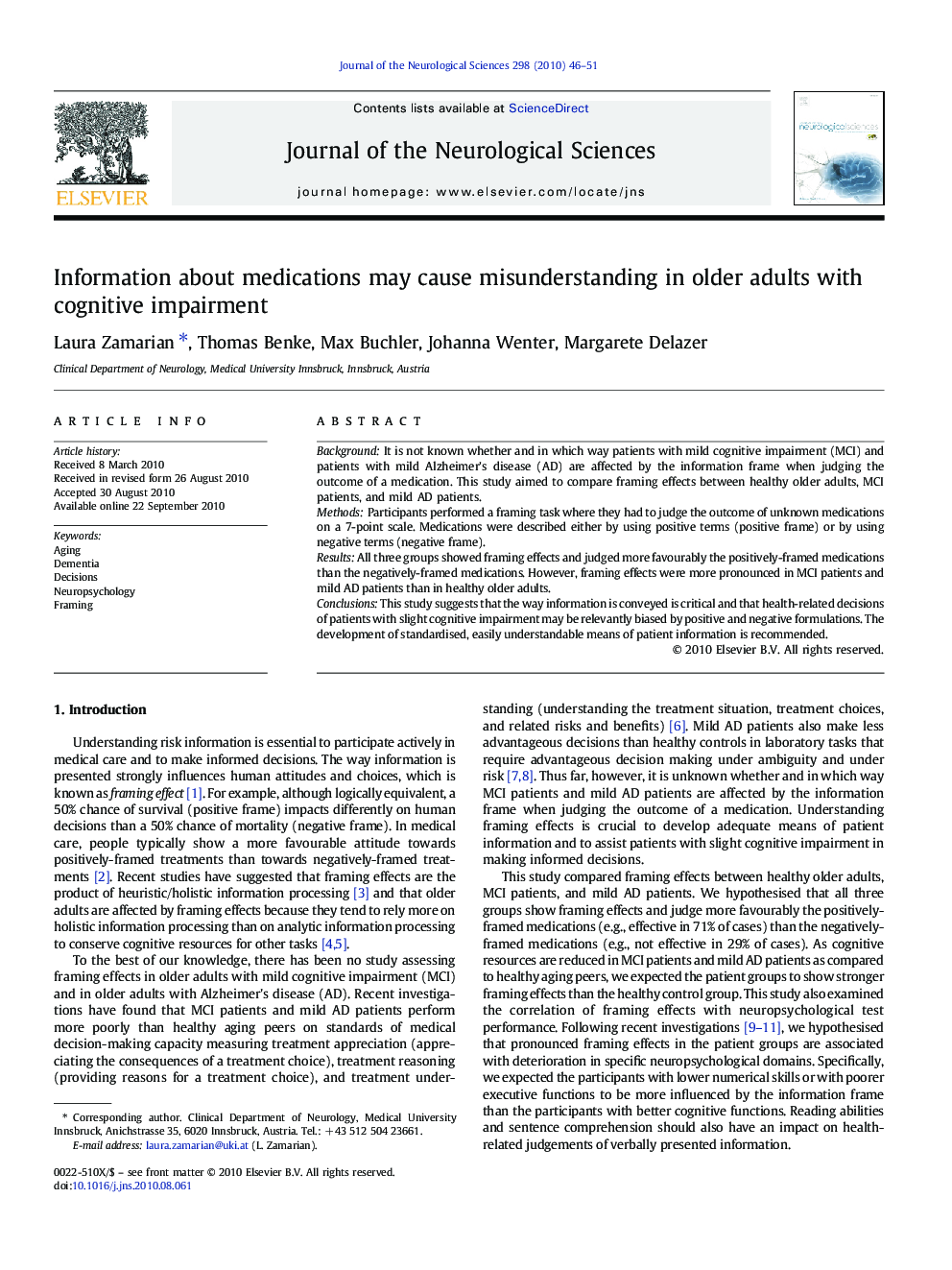| Article ID | Journal | Published Year | Pages | File Type |
|---|---|---|---|---|
| 1914518 | Journal of the Neurological Sciences | 2010 | 6 Pages |
BackgroundIt is not known whether and in which way patients with mild cognitive impairment (MCI) and patients with mild Alzheimer's disease (AD) are affected by the information frame when judging the outcome of a medication. This study aimed to compare framing effects between healthy older adults, MCI patients, and mild AD patients.MethodsParticipants performed a framing task where they had to judge the outcome of unknown medications on a 7-point scale. Medications were described either by using positive terms (positive frame) or by using negative terms (negative frame).ResultsAll three groups showed framing effects and judged more favourably the positively-framed medications than the negatively-framed medications. However, framing effects were more pronounced in MCI patients and mild AD patients than in healthy older adults.ConclusionsThis study suggests that the way information is conveyed is critical and that health-related decisions of patients with slight cognitive impairment may be relevantly biased by positive and negative formulations. The development of standardised, easily understandable means of patient information is recommended.
